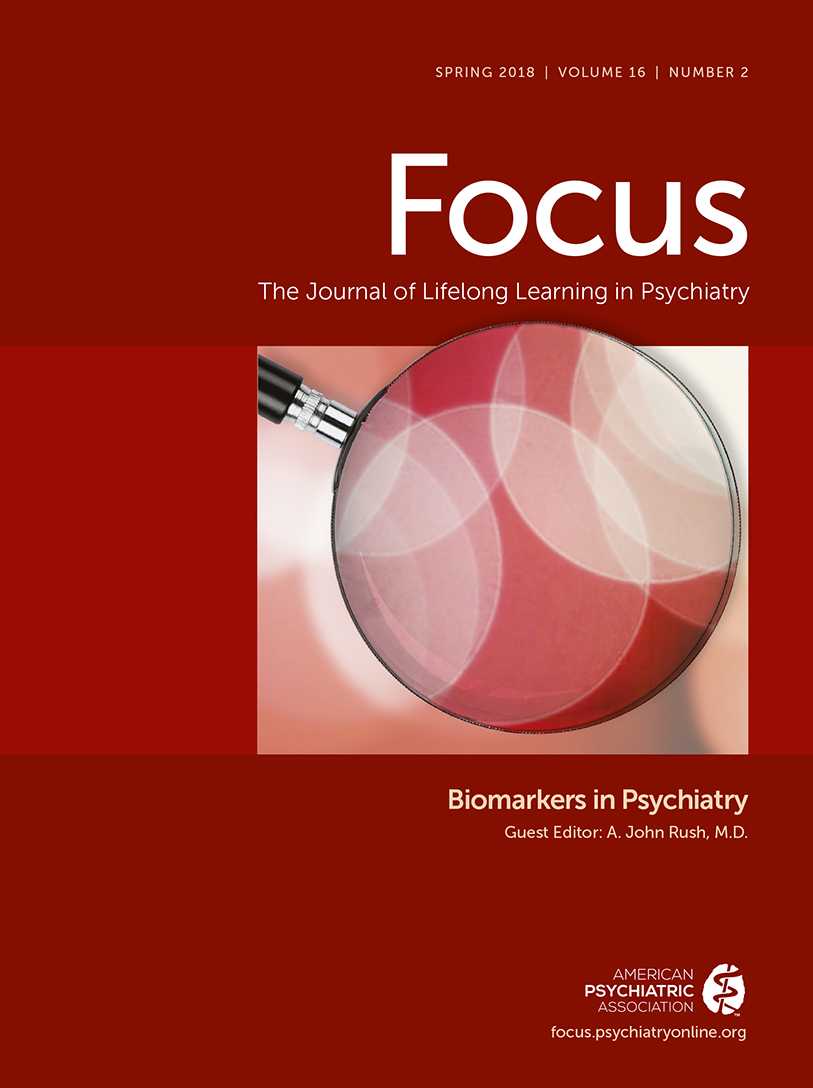Biomarkers in DSM-5 Sleep-Wake Disorders: A Useful Paradigm for Psychiatry?
Abstract
The biomarkers and nosology of sleep-wake disorder medicine, as represented in the DSM-5, furnish an informative paradigm for the use of biomarkers in psychiatric practice. This article presents a case study that illustrates the relevance of sleep-related biomarkers to diagnosis, treatment monitoring, and prognosis. The biomarkers discussed in the DSM-5 sleep-wake disorders chapter have reliability as well as antecedent, concurrent, and predictive validity, making them clinically useful for personalized medicine. The optimal clinical context for the use of such biomarkers is care that is measurement based, longitudinal, team based, patient focused, and (as often as not) family centered. In addition, such biomarkers also provide important clues to etiopathogenesis.



